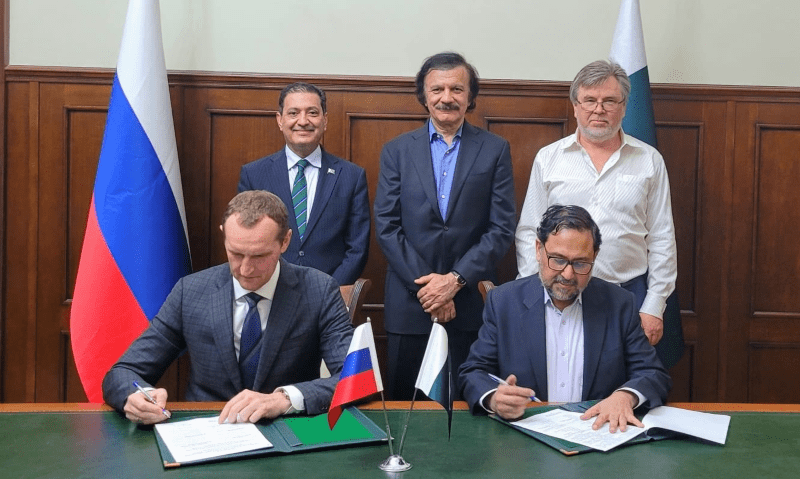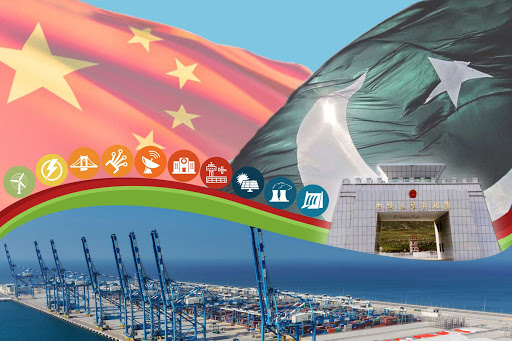Mohsin Siddiqui (Chief Reporter)
Pakistan and Turkmenistan have agreed to expedite the development of the Turkmenistan-Afghanistan-Pakistan-India (TAPI) gas pipeline project, a significant step in enhancing regional energy security and economic integration. The announcement comes as part of a broader effort to ensure that the pipeline, which is crucial for the energy needs of the region, proceeds on schedule.
The TAPI pipeline is designed to transport natural gas from Turkmenistan’s Galkynysh field, the world’s second-largest gas field, to Fazilka in India, near the Pakistan border. Stretching 1,800 kilometers (1,125 miles), the pipeline is set to carry approximately 33 billion cubic meters (bcm) of gas annually. This major infrastructure project aims to meet the energy demands of Pakistan, India, and Afghanistan while promoting regional economic cooperation.
On a recent visit to Pakistan, Turkmenistan’s Minister of Foreign Affairs, Rashid Meredow, met with Pakistan’s Minister for Petroleum, Musadik Malik. The meeting underscored the commitment of both nations to accelerating the TAPI project. According to Radio Pakistan, Minister Malik highlighted the substantial progress made through collaborative efforts on the pipeline, which is intended to enhance economic integration and bolster energy security.
The CEO of TAPI Pipeline Company, who attended the meeting, reported that the project is making significant strides and remains on track. This progress is attributed to the active involvement of Pakistan’s Ministry of Petroleum and the Special Investment Facilitation Council (SIFC). The collaborative efforts of these bodies are crucial for overcoming the challenges associated with the project’s execution.
Minister Rashid Meredow announced that a detailed “roadmap” would be developed to further enhance cooperation between Pakistan and Turkmenistan. This roadmap is expected to outline the steps needed to ensure the smooth implementation of the pipeline and address any potential obstacles.
The TAPI pipeline will feature a 56-inch diameter and span 1,680 kilometers, with a capacity to transport 3.2 billion cubic feet per day (bcfd) of gas. The pipeline will traverse Turkmenistan, Afghanistan, and Pakistan, reaching the Pak-India border. According to the TAPI agreement, Pakistan and India are each set to receive 1.325 bcfd of gas, while Afghanistan will receive a share of 0.5 bcfd.
In June, Pakistan and Turkmenistan formalized their commitment to the TAPI project by signing a joint implementation plan in Islamabad. The signing ceremony was attended by Prime Minister Shehbaz Sharif and a delegation from Turkmenistan led by Minister of Energy and Water Resources Daler Juma’a. This agreement marks a significant milestone in the project’s development, reflecting the strong bilateral cooperation between the two countries.
The TAPI pipeline is not just a commercial venture but also a strategic project that aims to enhance regional energy security. By connecting Central Asia’s vast natural gas reserves with the energy markets of South Asia, the pipeline is expected to play a key role in meeting the energy needs of the region and fostering economic growth.
The project also holds geopolitical significance, as it involves multiple countries with varying interests. Successful implementation of the TAPI pipeline could improve energy access and economic opportunities in Afghanistan, while also providing a stable energy source for Pakistan and India.
While the TAPI pipeline project promises substantial benefits, it also faces several challenges. These include logistical issues, security concerns, and political dynamics in the countries involved. However, the recent commitment by Pakistan and Turkmenistan to accelerate the project demonstrates their determination to address these challenges and ensure the pipeline’s successful completion.
The collaboration between Pakistan and Turkmenistan highlights the potential for increased regional cooperation and economic integration. By working together on the TAPI pipeline, both nations are taking a significant step towards achieving their energy security goals and enhancing their economic ties.




